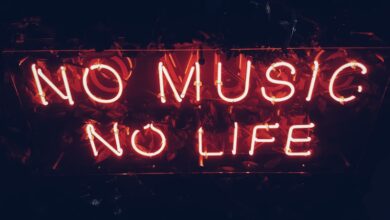The Therapeutic Benefits of Playing Musical Instruments: Music as Medicine


Introduction:
Have you ever felt a surge of joy or relaxation when listening to your favorite song? Music holds immense power, not only as a form of entertainment but also as a therapeutic tool. Playing musical instruments goes beyond creating melodies; it has the potential to heal and rejuvenate both our minds and bodies. In this article, we will explore the incredible therapeutic benefits that playing musical instruments offers, and how music can be considered a form of medicine.
Escape from Stress:
When life becomes overwhelming, immersing oneself in music can provide a much-needed escape. Playing a musical instrument allows us to channel our emotions into creative expression, acting as an outlet for stress. Whether strumming a guitar or playing the piano, the rhythmic flow of music helps calm the mind, reducing anxiety and promoting relaxation.
Cognitive Enhancement:
Engaging in musical practices stimulates various regions of the brain, leading to enhanced cognitive abilities. Research suggests that learning to play an instrument can improve memory, attention span, and problem-solving skills. The complexities of reading sheet music, coordinating hand movements, and interpreting sound patterns create new neural connections, sharpening the mind and boosting cognitive function.

Emotional Healing:
Music possesses an extraordinary ability to evoke and influence emotions. Playing a musical instrument enables individuals to express their feelings in a unique and personal way. It acts as a form of therapy, allowing emotional wounds to heal gradually. By pouring one’s heart and soul into the instrument, musicians find solace, catharsis, and a profound sense of emotional release.
Physical Rehabilitation:
Music is not limited to benefiting our mental well-being; it can also aid in physical rehabilitation. When used as a therapeutic tool, playing musical instruments can assist in motor skill development and coordination. For individuals recovering from injuries or neurological conditions, such as stroke patients, engaging in music therapy can help restore fine motor skills and regain physical dexterity.
Social Connection:
Playing a musical instrument often involves collaboration with others, fostering social connections and a sense of belonging. Jamming with fellow musicians or participating in group performances creates a shared experience that transcends words. Music brings people together, bridging gaps and creating bonds that can enhance overall well-being.
Conclusion:
Unveiling the Healing Power of Music: How Playing Musical Instruments Redefines Therapy
Introduction:
Have you ever experienced a surge of emotions when listening to your favorite song? Music has an incredible ability to touch our souls, evoke memories, and uplift our spirits. But did you know that playing musical instruments can go beyond mere entertainment and actually redefine therapy? In this article, we will explore the healing power of music and how engaging in the art of playing musical instruments can bring about remarkable transformations.
The Therapeutic Impact of Music:
Music has been an integral part of human culture for centuries, captivating hearts and minds across generations. It is no wonder that music therapy has emerged as a powerful tool to enhance physical, emotional, and mental well-being. When we play musical instruments, we stimulate various regions of our brain, triggering a cascade of positive effects. The act of creating music releases endorphins, often referred to as the “feel-good” chemicals, which can help alleviate stress, anxiety, and even chronic pain.
Expressive Outlet:
Playing a musical instrument offers an expressive outlet like no other. It allows us to channel our emotions, whether it’s joy, sorrow, or excitement, into the music we create. This creative process can be incredibly cathartic, providing a release valve for pent-up feelings. Just like painting or writing, playing a musical instrument becomes a canvas through which we pour our thoughts and emotions, fostering self-expression and personal growth.
Mindfulness and Focus:
Engaging in playing musical instruments requires undivided attention and a sense of mindfulness. As we practice, we become fully immersed in the present moment, setting aside worries and distractions. This focused state resembles meditation, where our mind tunes out external noise and attunes itself to the rhythm and melody of the music. The repetitive nature of practicing an instrument improves concentration and cultivates discipline, retraining our brain to stay attentive and resilient.
Social Connection and Empathy:
Playing musical instruments often brings people together, creating opportunities for social interaction and fostering a sense of belonging. Whether it’s jamming with fellow musicians or performing in front of an audience, music enables us to connect with others on a profound level. It transcends language barriers and cultural differences, acting as a universal language of emotion. Through music, we learn to appreciate diversity, develop empathy, and build meaningful relationships.
Conclusion:
Unlocking Harmonious Health: The Transformative Effects of Musical Instrument Therapy
Have you ever felt a surge of joy when listening to your favorite song? Music has the incredible power to touch our souls, but did you know that it can also have transformative effects on our health? Welcome to the world of musical instrument therapy, where the harmonious sounds of various instruments become the catalyst for healing and personal growth.
Imagine being able to express yourself without words, to communicate emotions that are buried deep within. That’s exactly what musical instrument therapy offers. By engaging with instruments such as guitars, pianos, drums, or even simple handheld percussion tools, individuals can tap into a wellspring of self-expression and unlock their hidden potential.
One of the remarkable aspects of musical instrument therapy is its ability to reduce stress and anxiety. Playing an instrument allows you to enter a state of flow, where your mind becomes fully absorbed in the music, leaving no room for worries or negative thoughts. It’s like a soothing balm for the soul, melting away tension and bringing about a sense of tranquility.

Furthermore, musical instrument therapy can enhance cognitive function and improve mental acuity. Learning to play an instrument requires focus, concentration, and coordination, stimulating various regions of the brain. This mental workout strengthens neural connections and boosts memory, providing a meaningful way to keep your mind sharp and agile.
But the benefits extend beyond the realm of mental health. Engaging with musical instruments can also have profound effects on physical well-being. For instance, playing the drums can be an excellent cardiovascular workout, increasing heart rate and improving overall fitness. It’s as if the rhythm of the music synchronizes with the beating of your heart, creating a harmonious dance of vitality.
Moreover, musical instrument therapy can be especially beneficial for individuals with emotional or behavioral challenges. The act of making music allows them to channel their emotions constructively, providing an outlet for pent-up feelings. It’s a form of therapy that transcends language, enabling individuals to express themselves in a safe and non-judgmental space.
Striking the Right Chord: How Playing Musical Instruments Can Alleviate Stress and Anxiety
Are you feeling overwhelmed by the pressures of everyday life? Do you find yourself searching for an outlet to escape from the stress and anxiety that seems to follow you everywhere? Look no further than picking up a musical instrument. Yes, you heard it right! The power of music is truly remarkable, and playing a musical instrument can be the key to unlocking a world of relaxation and serenity.
When you immerse yourself in the art of playing an instrument, something magical happens. Your mind becomes completely engrossed in the music, shifting your focus away from the worries and troubles that plague your thoughts. It’s like embarking on a journey where every note you produce resonates with your soul, allowing you to express emotions that words alone cannot capture.
Doctors and scientists have long recognized the therapeutic benefits of playing musical instruments. The act of playing requires concentration and mental engagement, which effectively redirects your mind away from stressors. As you practice and improve, you experience a sense of accomplishment, boosting your self-esteem and confidence. It’s a constant reminder that you have the power to create something beautiful amidst the chaos.
Playing musical instruments also has a profound impact on your physical well-being. The rhythmic movements involved in playing, whether it’s strumming a guitar or drumming on a set of drums, can help release tension in your muscles. The steady flow of melodies can even regulate your breathing and heart rate, inducing a state of calmness and tranquility.
Moreover, music itself possesses the incredible ability to evoke emotions and trigger memories. It can transport you to a different time and place, allowing you to momentarily escape the present challenges. Just imagine losing yourself in the gentle melody of a piano, feeling the stress melt away with every chord you strike.

So, if stress and anxiety have been weighing you down, consider adding a musical instrument to your life. Whether you choose a guitar, keyboard, flute, or any other instrument, the mental and emotional benefits are undeniable. Make music your sanctuary, your safe haven, where you can find solace and release. Strike the right chord and let the healing power of music transform your world.
Sound Waves of Healing: Harnessing the Therapeutic Potential of Musical Instrument Play

Have you ever wondered how music has the power to touch our souls and evoke strong emotions? From ancient times to modern-day, humans have recognized the healing properties of music. There is something magical about the way sound waves can transport us to a different state of mind, washing away stress and bringing us peace. One powerful avenue for accessing this therapeutic potential is through musical instrument play.
When we engage in playing musical instruments, we create vibrations that resonate through our bodies and minds. These vibrations interact with our cells, tissues, and neural pathways, stimulating positive changes within us. It’s almost like giving your body a relaxing massage from the inside out. Whether it’s strumming a guitar, striking a set of drums, or blowing into a flute, each instrument offers its unique blend of harmonies and tonalities, providing an outlet for emotional expression and self-discovery.
The act of playing a musical instrument can be a form of meditation. As we immerse ourselves in the rhythms and melodies, our focus shifts away from daily stresses and worries. Our attention becomes attuned to the present moment, allowing us to experience a sense of flow and connection with ourselves. This therapeutic journey can foster creativity, improve concentration, and enhance cognitive abilities.
Moreover, engaging in musical instrument play can promote physical well-being. The repetitive movements required to play certain instruments, such as piano or drums, can strengthen motor skills and coordination. For individuals recovering from physical injuries or neurological conditions, playing instruments can aid in rehabilitation by promoting dexterity and muscle control.
Beyond individual benefits, musical instrument play also facilitates social interaction and community building. Joining a band or an ensemble creates an opportunity to collaborate with others, fostering teamwork and communication skills. Music has the incredible ability to unite people from diverse backgrounds, transcending language barriers and cultural differences.




